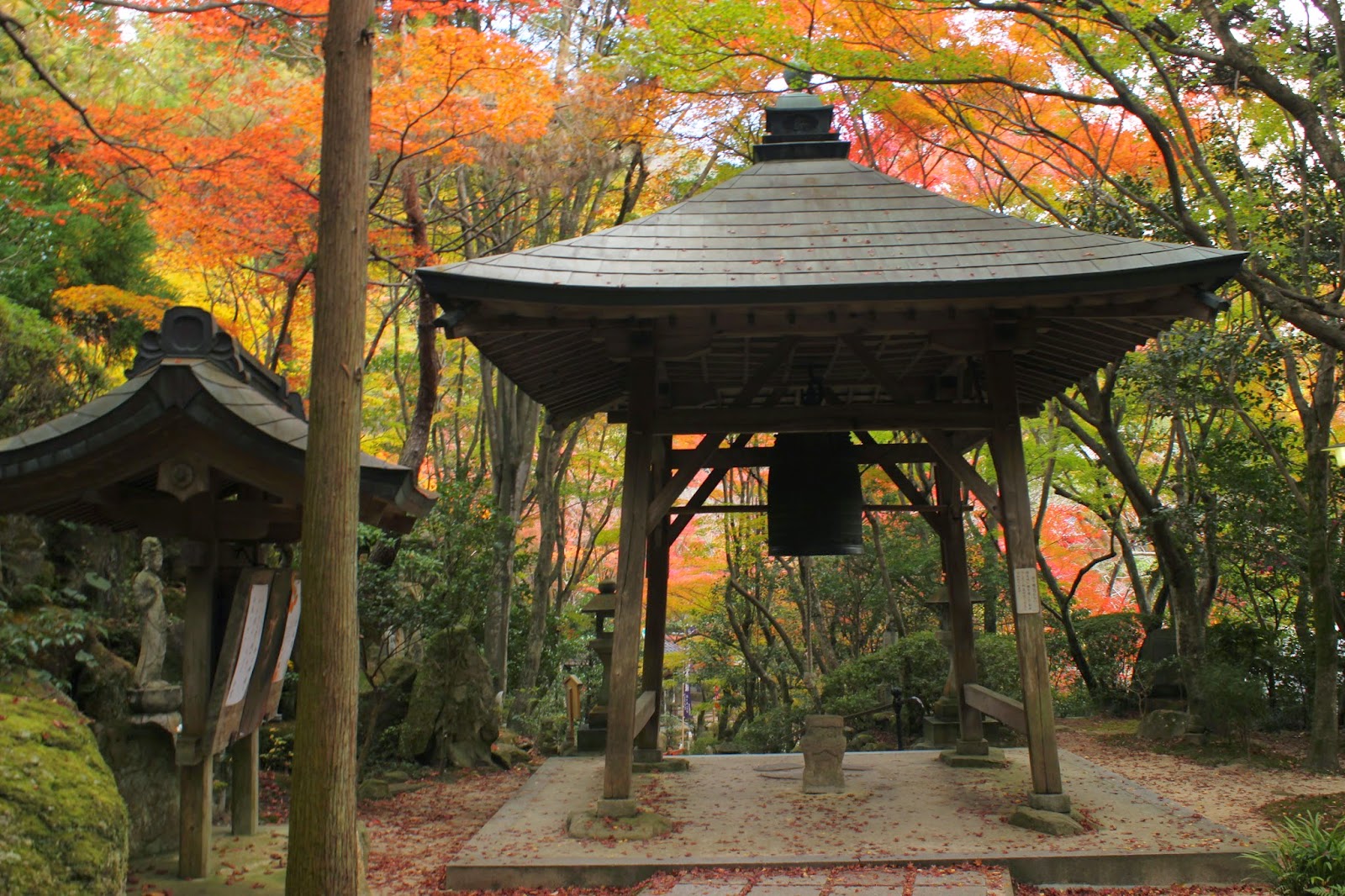MIYAJIMA
So, endlich habe ich wieder etwas Zeit, um einen neuen
Blogpost zu schreiben. Die letzten Tage waren sehr aufregend für mich
und diese Woche wird sogar noch aufregender, da ich von Mittwoch
morgends bis Samstag abends in Osaka und Kyoto unterwegs sein werde.
[Now I got some time to write a new post. The last days were very exciting and this week will be even more exciting for me, 'cause from Wednesday morning to Saturday evening I'll be in Osaka and Kyoto.]
Samstag hatte die Uni einen Besuch auf Miyajima für uns ausländische Studenten organisiert. Es waren aber auch japanische Studenten und einige Professoren dabei.
Zuerst mussten wir mit dem Bus zur Yokogawa Station. Von dort aus ging es mit dem Zug weiter und das letzte Stück sind wir mit einer Fähre gefahren.
[On Saturday the university organised a trip to Miyajima for us foreign students. But there were also some Japanese students and professors.
First we had to go to Yokogawa station by bus. Then take a tram and last took a ferry.]
Auf Miyajima laufen Rehe frei rum. Die sind zwar zahm, aber extrem unverschämt... Sie rennen einen fast um und klauen einem das Essen. Trotzdem mussten wir sie einfach streicheln. Sie waren eben trotzdem niedlich.
Es gibt auch Affen auf Miyajima, allerdings auf der Spitze des Berges. Dort waren wir leider nicht. Aber ich möchte auf jeden Fall nochmal nach Miyajima, und dann kletter ich dort hoch.
[There are a lot of deer. They are tame, but very sassy... They race round and steal your food. But we really had to fondle them. They were totally cute at all.
There are monkeys too at Miyajima, but just at the top of the mountains. We weren't there. But next time I really have to climb the top.]
Miyajima bedeutet Schrein-Insel. Und es ist wunderschön dort!!!
Miyajima gehört zusammen mit Amanohashidate und Matsushima zu den drei schönsten Landschaften in Japan.
[Miyajima means "shrine island". And it's so beautiful there.
Miyajima, Amanohashidate and Matsushima are the three most beautiful landscapes in Japan.]
Es gibt sehr sehr viele Schreine und Tempel.
Besonders berühmt ist der Itsukushima-Schrein, zu dem auch das große Torii im Wasser gehört. Das Torii ist das beliebteste Motiv von Miyajima.
Angeblich bringt es Glück, wenn man das Torii berührt. Nächstes Mal mache ich das - denn etwas Glück kann ja nicht schaden.
[There are a lot of shrines and temple.
The most famous one is the Itsukushima-Shrine with the big red Torii in the water. The Torii is the most popular motive of Miyajima.
Supposedly you'll get a lot of luck if you touch the Torii. Next time I'll touch it - a little luck isn't bad, right? ]
Miyajima ist berühmt für seine gegrillten Austern und Momiji manju.
Ich habe beides gegessen und beides war ultra lecker. Das Momiji manju war diesmal auch frittiert. Zwar extrem fettig, aber auch sehr lecker.
[Miyajima is famous for it's grilled oyster and Momiji manju.
I ate both of it and both was very delicious. This time the manju was fried. It was very fatty, but delicious.]
Richtig schön: Es gibt so viele alte Häuser auf dieser Insel!!
Und die Natur ist beeindruckend. Überall gibt es Ahornbäume, überall leuchtet es Rot. Der Ginko leuchtet gelb und ich liebe den Herbst hier so sehr.
[Really lovely: There are a lot of very old houses at the island!!
The nature is so amazing. There are maple trees everywhere, everywhere the leaves are red. The maidenhair tree is so yellow and I really love the Autumn in Japan so much.]
Zum Abschluss noch ein paar Fotos von mir und Freunden.
[Last but not least - some pictures of myself with friends.]


















































